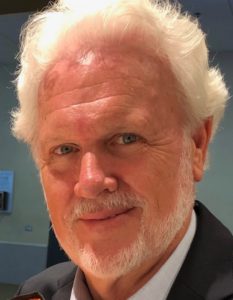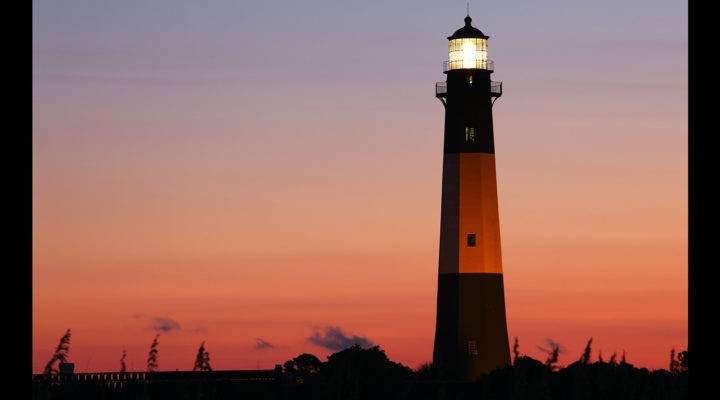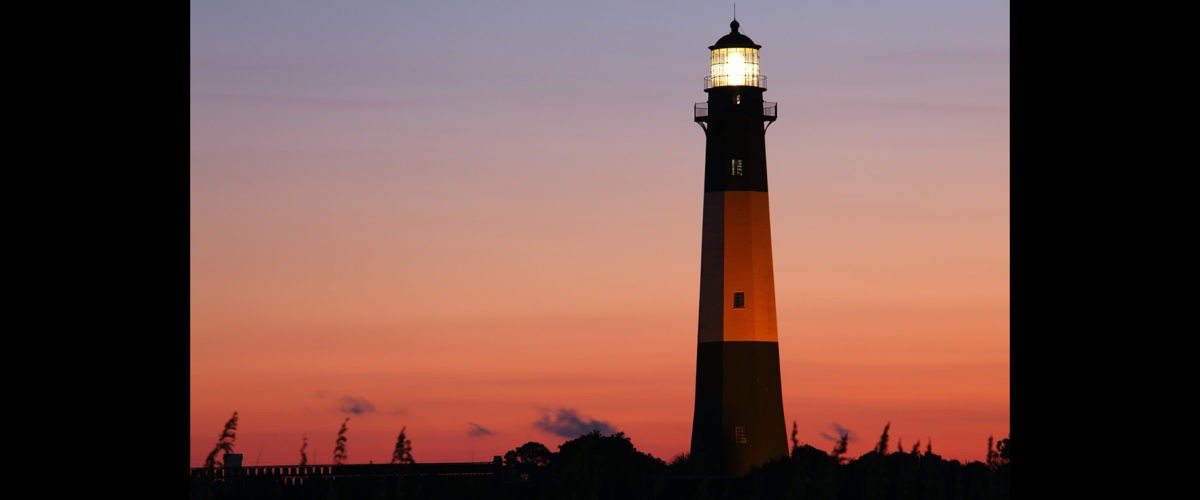A half century ago, Bobby Russell wrote a song about infidelity, murder and a messed-up legal system. The chorus summarizes the result and gives the song its now-famous name:
That’s the night that the lights went out in Georgia.
That’s the night that they hung an innocent man.
Other versions of this Southern ballad include a video, a movie and various altered lyrics. Taken together, they have empowered the song title to represent a way of justice in the American South, one that replaced law, truth and due process with the unholy trinity of power, prejudice and outright corruption.

Dwight Moody
Which might explain my cynicism when, 18 months ago in Brunswick, Ga., three men were arrested and charged with the murder of Ahmaud Arbery.
Brunswick is the county seat of Glynn County, home also to St. Simons Island, Sea Island and Jekyll Island, known collectively as the Golden Isles. Just north of Sea Island Road on St. Simons Island you will find Holly Street where, five years ago, my wife and I purchased a small house and called it home.
Thank God, not all the lights of Georgia have flickered out.
Jimmy Carter still lives in Plains and shines as bright as any life on the planet. Add NFL great Jim Brown, movie mogul Tyler Perry, Secretary of State Brad Raffensperger, political activist Stacey Abrams, pastor and U.S. Senator Raphael Warnock, professors and preachers Lawrence Carter and Teresa Fry Brown; and, of course, the entire unbeaten and No. 1 football team at the University of Georgia.
Nevertheless.
Justice for minorities in Georgia has, for years, been lost in a darkness of racial prejudice and white power. Georgia was at the center of the slave trade and, later, of the Confederate rebellion against the United States. Bitter from defeat, white people took out their anger on their Black neighbors. Politicians and preachers conspired with elected leaders of all kinds to keep the state white. The NAACP’s official organ, “The Crisis,” once dubbed Georgia the “Empire State of Lynching” because of our horrifying record of racial vigilantism. The murder of Ahmaud Arbery had all the marks of yet another lynching.
“Justice for minorities in Georgia has, for years, been lost in a darkness of racial prejudice and white power.”
Greg and Travis McMichael and Roddie Bryan were charged in the murder of Ahmaud Arbery. By the time the trial opened in October 2021, the mood in the United States had changed. The killing had lit a fuse that burned through Louisville (the killing of Breonna Taylor), New York (the arrest of Amy Cooper), and Minneapolis (the murder of George Floyd). Millions of people around the world took to the streets to protest our history of racial profiling.
Behind the scenes, the Attorney General of the State of Georgia got involved and by doing so, turned on some lights in black-as-night Brunswick. He directed the Georgia Bureau of Investigation to take charge; he invited the Federal Bureau of Investigation to join the effort; and he appointed a team from Atlanta to prosecute the case.
Another light went on when Judge Jeffrey Knight of the First Judicial Circuit of the Superior Court of Georgia (which includes both Savannah and Brunswick) appointed Judge Timothy R. Walmsley of Savannah to adjudicate the trial.
Meanwhile, the Georgia State legislature also found the light switch. They repealed the slave-era law permitting citizen’s arrest and enacted the state’s first hate crime bill, thus catching up, finally, with the rest of the country.
The lights dimmed when Judge Walmsley allowed the seating of an 11-member jury that included only one Black person, and this in a city that is 66% Black and a county that is 30% Black. He complained about jury selection from the bench. It’s legal, he said, but it isn’t right.
“The lights evidently were working in that jury room.”
But in the end, the lights stayed on in Georgia.
After 12 days of trial and two days of deliberation, the jury found all three men guilty of multiple felonies, including murder. The lights evidently were working in that jury room.
It is hard to say how this series of events will impact the justice grid in Georgia. But whatever power flowed through the state over the last 21 months, suffice it to say that millions of citizens in this grand state are rejoicing that it was sufficient to keep one courthouse in Brunswick burning bright with justice.
Let your light so shine, said one famous teacher, that people will see your good works and give glory to God. Today, I give glory to God. But I also give thanks to the network of good people who did the right thing down here in Georgia.
They kept the lights on. And so should we.
Dwight A. Moody is an author, minister, scholar and radio host. He lives on St. Simons Island, Ga. He is host of the media site The Meeting House.
Related articles:
The Ahmaud Arbery murder trial encapsulates the two Americas today, but there’s a silent third group | Opinion by Mark Wingfield
No, justice was not done in convicting Ahmaud Arbery’s killers | Opinion by Susan Shaw
Accountability for the execution of Ahmaud Arbery: More is needed | Opinion by Ken Sehested
Dear white people like me, this is what it means to accuse Black people of causing the very crimes committed against them | Opinion by Mark Wingfield
The air that surrounds the Ahmaud Arbery trial and so many trials | Opinion by Brittini Palmer
Kyle Rittenhouse, whiteness, and a divinely ordained license to kill | Opinion by Robert P. Jones


